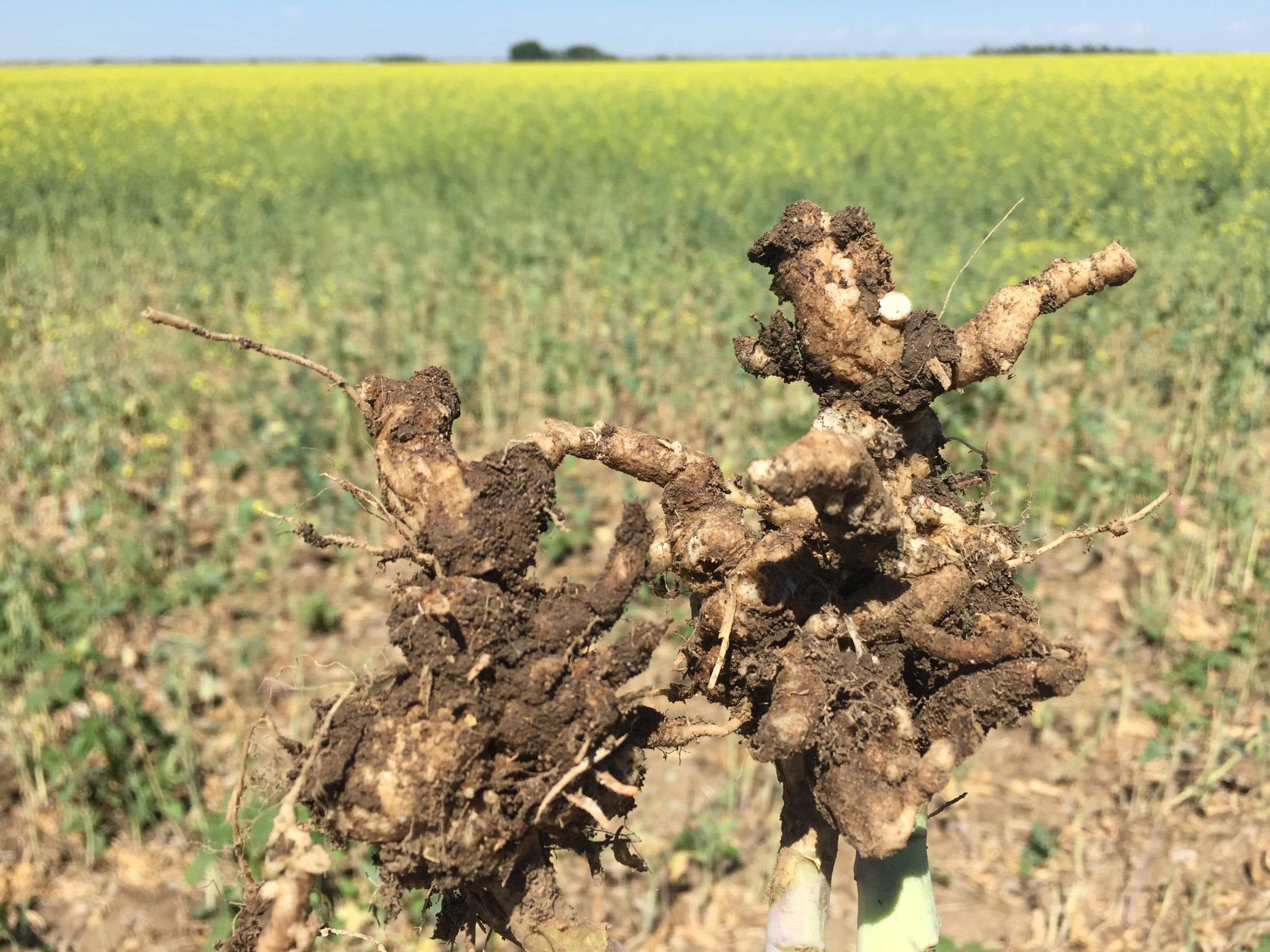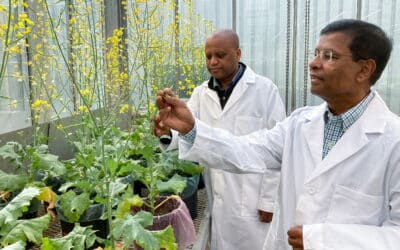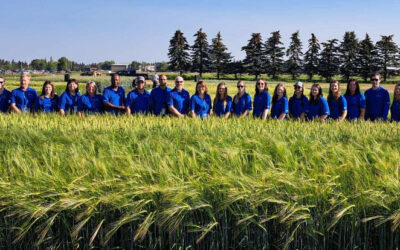The following piece is from our sister publication, Germination.
Technology could be a game-changer in the fight against this destructive Prairie canola pathogen.
A breakthrough in the fight against clubroot on the Prairies has been made by a Saskatchewan-based genomics company, which has filed a provisional patent on the technology and hopes to soon commercialize it.
NRGene Canada, based in Saskatoon, Sask., says it has identified novel non-GMO canola genetics that exhibit high resistance against multiple pathotypes of clubroot disease. For some of the new pathotypes found on the Prairies, this is the first time that resistant genetics have been identified, according to Masood Rizvi, general manager of NRGene Canada.
NRGene Canada has succeeded in identifying resistant sources to multiple pathotypes, as well as identifying resistance traits in the progenies of canola plants that present dominant genetic inheritance.
Rizvi estimates that by the end of 2023, NRGene Canada will finalize the development of genetic markers, which will ensure the future successful introgression of the resistance traits to elite canola lines of its customers and partners.
NRGene Canada is now actively seeking local Canadian and global partners to ensure that varieties with these resistance genes are available to farmers and producers, something it hopes to do by 2025 with the support of Canada’s Industrial Research Assistance Program (IRAP).
Canola is one of Canada’s most valuable crops, contributing over $29.9 billion annually to the Canadian economy, according to data from the Canola Council of Canada.
Currently, no chemistry is available to eliminate clubroot in soil. The disease, caused by the pathogen Plasmodiophora brassicae, overwinters in soil before going on to infect the roots of canola plants.
“Developing elite varieties with durable multi-variant resistance is the most strategic course to fight clubroot, and we’ve taken a big step with this discovery” Rizvi says.
This announcement comes at a time when growers need new tools to fight clubroot, which has been exponentially expanding throughout the Prairies since 2003, impacting root structure and the plants’ ability to uptake nutrients — in turn affecting yield output. The Saskatchewan government estimates that the incidence of clubroot in the province has more than doubled since 2018. The disease can cause yield loss of up to 90 per cent.
“Clubroot is a tricky pathogen, because you have multiple pathotypes in a single field. All it takes is one of the pathotypes in that population that’s trying to infect the plant to be able to overcome genetic resistance, and then it shuts down the plant’s defense mechanisms. That allows other pathotypes to then cause co-infections,” says Doug Heath, research manager for SaskCanola.
“We need multiple sources of genetic resistance working together to prevent as many pathotypes from infecting the plants as possible. Anytime we have new sources of genetic resistance, it’s going to be a boon to the whole canola industry.”
NRGene Canada opened its doors at Innovation Place at the University of Saskatchewan in 2020. The company develops and commercializes AI-based genomic tools and provides some of the largest ag-based companies in the world with computational tools to optimize and accelerate breeding programs, to significantly increase crop yield, save time, costs and other resources.
“We brought our genomics and AI capabilities to the heart of the Canadian Prairies to help local producers grow better yielding and healthier crops. Our mission is to help create a food-secure future, and the Prairies are at the forefront of these efforts,” says Gil Ronen, NRGene founder and CEO.
Related Articles
Lime Showing Promise as Way to Control Clubroot in Canola





